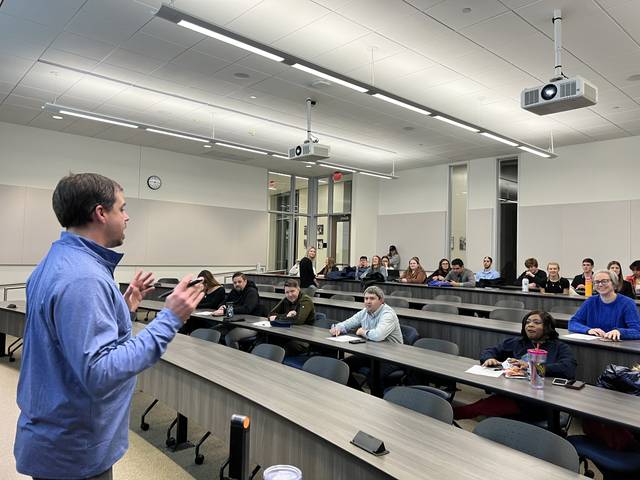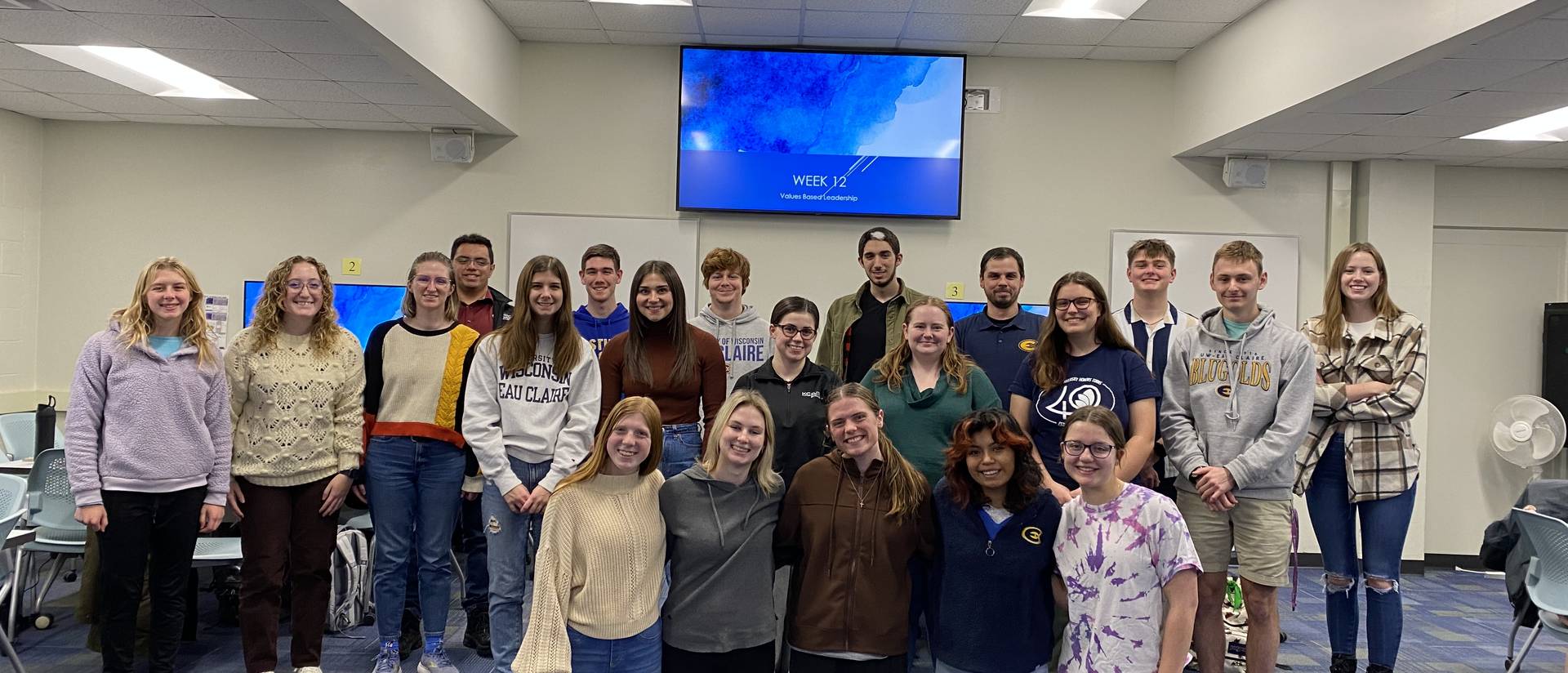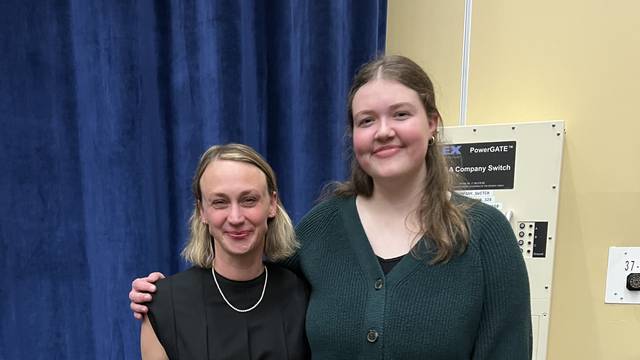Whether you come into college self-identifying as a leader or not, leadership comes from a set of skills that everyone can develop with practice, and learning how to lead is one way students can set themselves up for long-term professional success, no matter their field. In Honors 190: Developing as a Leader, new Honors instructor Ken Johnson worked with students to explore the components of leadership that will help them succeed in all aspects of life.
Leadership has always been an important part of Ken’s life and he continues both to be a leader for the Eau Claire community and to foster leadership development in young people. He teaches the National Youth Leadership Training curriculum for the local Boy Scouts, for example. Through his involvement with Leadership Eau Claire, a Chamber of Commerce program for local professionals to learn about leadership and community, he met Heather Fielding, the director of the Honors program. From there, he developed this course to help students develop professional leadership skills before they leave college.

When talking about these opportunities, Ken said, “You're not going to be exposed to it until you get into your regular careers. And the skills and the tools that we're teaching in this class, it's giving you those [skills] early on to make you more successful.”
In class, students learned about the stages of team development, values in leadership, and community building. Their teams, which were formed to allow students from different fields and experience levels to learn from and with each other, participated in discussions and hands-on activities. For example, students formed a plan to lift a hula hoop to a distance level above the ground using only their forefingers. Then, students attempted this task without speaking. They learned how to problem solve and work as a team using communication other than speech. According to Jenna Kroeker, a student from the class, everyone learned a lot from each other during the course.
The goal of the course was to teach the students how to work effectively as a team, which was put into practice with their final project. Each team chose a non-profit organization to work with, including the Girl Scouts, Boy Scouts, The Community Table, and Junior Achievement. The intention of this project was not to simply volunteer for these organizations but to help them with something they didn’t have the resources for. The groups prepared winter activities, a social media audit, a hygiene and food drive, and fostered relationships among community organizations. By the end, students knew how to bring a project to fruition.
Dylan Berry, the teaching assistant for the course, said he’d seen firsthand how the students have grown. Not only have the students become more confident and sociable, but they’ve been able to work together to meet their goals, as opposed to working separately for the same purpose. Dylan especially appreciates the opportunity to teach in Honors, as it is one of the best ways to refine what you know.
By the end of this course, students had a “toolbox of leadership skills and knowledge that they can take with them…and utilize throughout the rest of their lives,” said Ken.
Connor Dallman, another student from the class, appreciated the course’s emphasis on personal growth and he highly recommends it to “anyone seeking a new challenge.”
In the future, Ken hopes to create another course expanding on these topics. He says in one semester, students are “only touching the surface of what's out there.”



